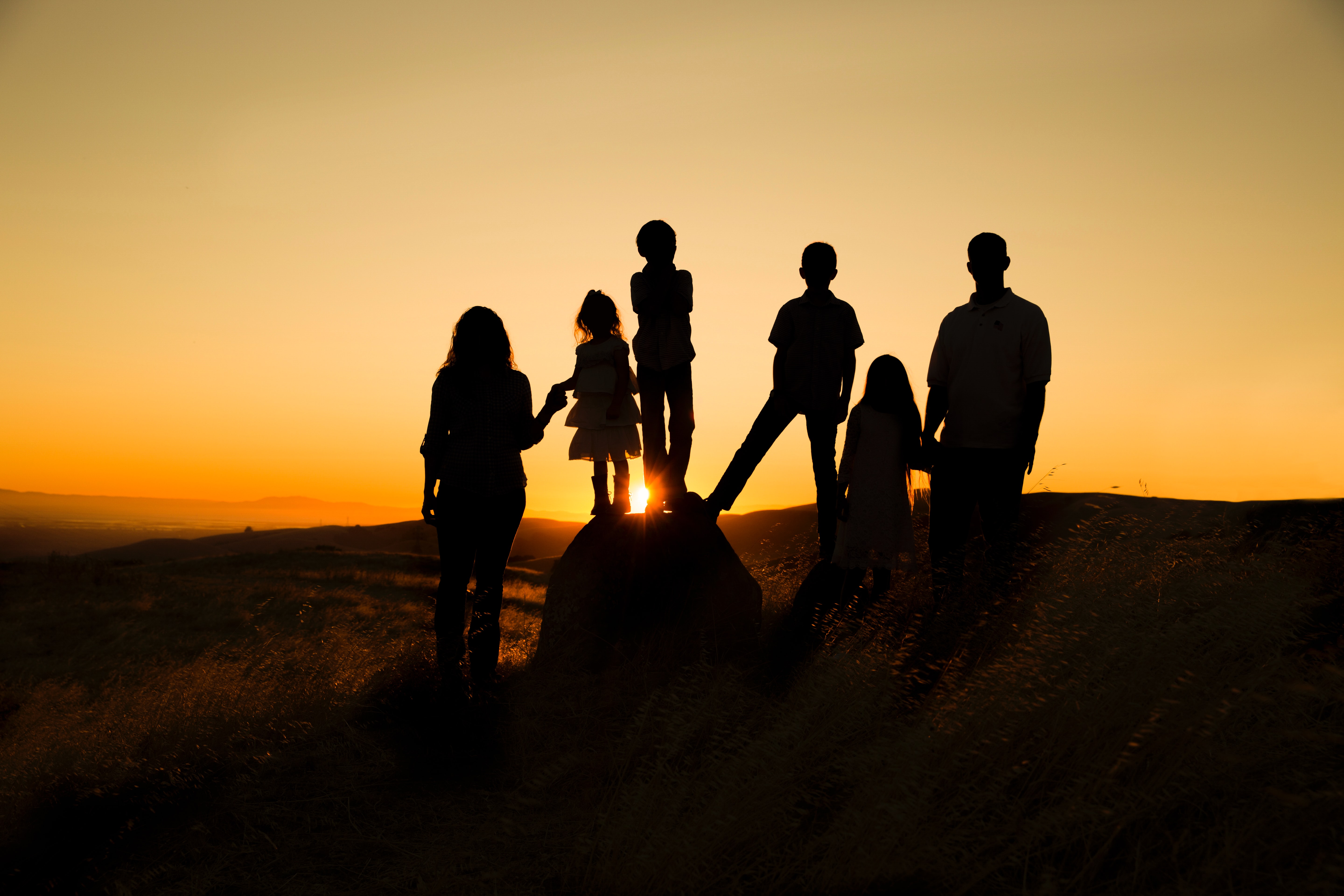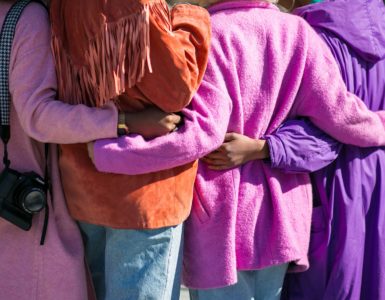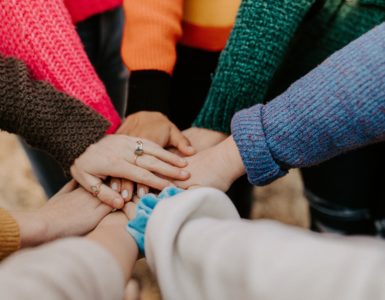Open adoption often makes people quite nervous. We have three open adoptions, and I find that people’s eyes tend to bug out when I say that. Often, people will ask: Do the birth parents call you? (Yes – they all have our phone numbers.) Do the birth parents contact you on Facebook? (Yes – those that use Facebook have all added us to their friend list.) Do the parents know where you LIVE? (Yes, and almost all of the birth parents have stayed with us, in our home, at some point.) And, most commonly, “Do you have problems with them? What if they hurt you?” I’m sure the thought is there that both emotional and physical hurt could be possible.
Faux Adoption Heroes and Villains
Although closed adoptions are no longer legal in Canada and education on adoption issues continues to improve, many in the general public still think negatively about open adoptions. They often feel it is too painful for the child or that the parents no longer “deserve” access, in any form, no matter how small, to the child. We no longer say “gave up for adoption” but rather “placed for adoption,” out of respect for the journey of the child and to change the negative perception of adoption that used to be held; Goodbye, shame! But we still sometimes think of “them” (the birth parents) as the bad guys and “us” (the adoptive families and supporters of adoptive families) as the good guys.
Well, here’s the rub. It is far from being that simple. Before we even dig into how to better a current open adoption, we need to dispel any lasting myth about heroes and villains in adoption. Of course, some children who are adopted through orphanages or the foster care system may have gone through horrific things. And yes, there are parents out there who have seriously neglected and abused their kids prior to placing (or abandoning or losing to the system) their children for adoption. This is a hard truth in our hard world.
I choose to think of this through the lens of “hurt people hurt people,” meaning that only someone who has themselves experienced intense self-loathing or trauma will act this way in what should be a blessed and joyous relationship: that between parent and child. It isn’t that we should feel sorry for birth parents, even those whose behavior or own lives are in chaos; it is that we should feel empathy for them. Whatever things have happened in their lives to bring them to this place is something that holds a devastating sadness in my heart. Not many of us will ever understand what it means or how it feels to place a child for adoption. And this is where we need to start if we want to better our open adoptions. To read about more myths that need to be dispelled, click here.
Rid Yourself of Lingering Fear
Next, let’s get rid of lingering fear. We, of sound mind and relative calm in our lives, are usually trying to keep it that way. It is important to be vigilant with our children to be safe. No one is suggesting we put ourselves in danger or risk anything with our children. So, just listen for a moment while I say the vast majority of birth parents are not dangerous, although people practically break out in hives at the thought of birth parent connectedness. Hear me out. I have worked with dozens upon dozens of birth parents at this point, both through my own home and in interactions with other adoptive families, as well as in our street ministry.
Yes, the possibility of a dangerous birth parent, due to mental illness or drug abuse, is within the realm of reality. But the vast majority of birth parents are not going to cause a physical threat. (If you are dealing with a rare case in which you feel unsafe or threatened, RCMP involvement is a must for your protection.) This leads me to think that it is possible that most people realize this and might actually be referring to the perceived emotional threat. After all, this parent has a connection to the adoptive child that no one else will ever have. Some people have an emotional reaction to the idea of including someone with such a strong biological connection to the adopted child. I understand this, but for some reason – and I take it as a blessing – I have never struggled with the feeling in my own life.
Better Your Open Adoption by Letting Go of Feelings of Inferiority
The first step for anyone to better their open adoption is to let go of any feelings of inferiority. If you are an adoptive parent and feel threatened by your adoptive child meeting their birth parents or by the idea of them enjoying a healthy, beneficial relationship with their birth parents, it is really important that you get support. An adoptive mom is not better or superior to a birth mom. Period. Both are fallible human beings who can and have made mistakes.
Sometimes our first response is to act high and mighty in an attempt to show that you, the adoptive parent, ARE superior. This will damage any budding relationship and does not support the child in any way. This is not a judgment on my part, as feelings that rise up are not wrong. What can be wrong is what we do with those feelings. The best thing you can do to better your open adoption is talk with a therapist or counselor trained in adoption issues about your true feelings about the birth parents and get to the root of why you feel the way you do.
Better Your Open Adoption Through Gaining Perspective
The next big part of improving open adoptions is to try to truly understand where the other person is coming from. It is unlikely that an adoptive parent will also have been a birth parent who placed for adoption and vice versa. This means we will not have walked in each other’s shoes. A huge part of any relationship is remaining non-judgemental and seeking to understand.
I would say the birth parent is the one with the most overcoming to do when it comes to adoption. Yes, birth parents go through major changes when a placement is made, and yes, major medical and behavioral issues the adoptive parent deals with are likely hard for the birth parent to truly understand. But the adoptive parent has not had to go through the heart-wrenching process of letting go of a child. No matter what side of the issue you are coming from, try to have grace for the other person and think about things from their perspective.
Okay, those are probably the hardest issues to deal with in open adoption. Honestly, they all have to be dealt with in order to have a healthy relationship on your adoption journey. Take heart – it doesn’t all have to happen right away. Chances are, if you are struggling in your role, the other person probably is as well. Adoption is not a fairy tale and it is not easy. It also isn’t simple. Every story and journey is different, partly because as people, we carry things differently, react differently, and think differently. There is no “one size fits all” when it comes to adoption and that is a relief! This means we don’t have to conform to one way of doing things and that we can adjust our situation to fit our uniqueness.
Better Your Open Adoption Through Willingness
I am going to go ahead and say the single thing that will affect your open adoption the most is WILLINGNESS. If anyone in the adoption triad is not willing, things will start to break down. If you find yourself hitting a roadblock, see if you can identify an area of unwillingness in yourself. It might be hard to identify in others but you aren’t responsible for the emotions of others anyhow. Sometimes, where you find unwillingness, you see an area where you should have put up a boundary but were perhaps worried about causing offense. Or, it could be an area that you aren’t ready to tread in and you will need some additional support before going there. That is okay! Own it, speak it, and carry on the best you can. How?
Here Are Some Ideas and Ways to Make Your Open Adoption the Best It Can Be.
Be real. Don’t hide. Don’t try to be what you think the birth or adoptive parent wants you to be. That won’t work for long and fakeness does not lend itself to building lasting relationships. You are unique and wonderful, so just be you!
Be honest. If you are struggling, say so. How many times are we silent or pull away and harm a relationship? It takes a lot of effort to be honest. I challenge you to always be honest in your open adoptions. Yes, honesty hurts feelings sometimes. Hard truths said with kindness and an intent to heal, not hurt, build a solid foundation. Half-truths or things said just to avoid a conflict set you up for trouble later on. Set up to start the way you want to finish.
Be authentic. Don’t put on airs and make it sound like you live a fairy tale. I assure you, you don’t. If you’re having a good day, great! But be as quick to share your own struggles as you are your achievements. This will make you relatable. If someone is always talking about their high points, I’m unlikely to share about myself. Why? Because I struggle! It is not realistic to be always happy, always succeeding, always right. We can always be filled with joy, but that doesn’t mean everything is always going to go our way. Authenticity invites real relationships.
Be a good listener. Be quick to listen and slow to speak. Ask questions about the other person and really want to get to know them! It is easy to talk about yourself. Do that harder thing and set a goal to learn as much as possible about the other person in this adoption triad.
Be a person that follows through. If you promised a visit, go to the visit. Seriously. If you have the flu, that might be a reason to cancel. But don’t be flaky. The other person might already be hanging by a thread emotionally. Don’t cancel at the last minute, say yes to things you know you can’t follow through on, etc. You don’t look or seem trustworthy if you are unable to consistently follow through. And your children are watching. Show them what it means to live with integrity.
Be flexible. In a culture that is dead set on defending it’s rights, be the first to say yes to an unexpected change to a schedule or plan. Sure, it can be annoying. But you know what? The other party might just be going through more than you will ever know emotionally. Be that person that is ok with changing a visit time, location, etc. When you give grace, you are more likely to receive it.
Be who you would want to be if you had to trade places. I often think, “If I were adopted, what would I want my adoptive parents to do?” Or, “If I were a birth parent, what would I think about this?” Be who and what you would need if you were in someone else’s shoes. This leads to buying a little gift for the other triad members, taking and framing photos, making a life book, having a quiet coffee…so, so many things. All of them beautiful.
Open adoption is not easy, and most people you meet will not have a clue what to tell you or what you are going through because they haven’t experienced it. They might discourage you or seem negative on the whole idea. That’s okay. If you are a part of an open adoption, you are spreading a special sort of love and light. Open adoption is a gift that adoptive parents and birth parents can give each other by working together for the benefit and love of the adoptive child. It’s worth it!




